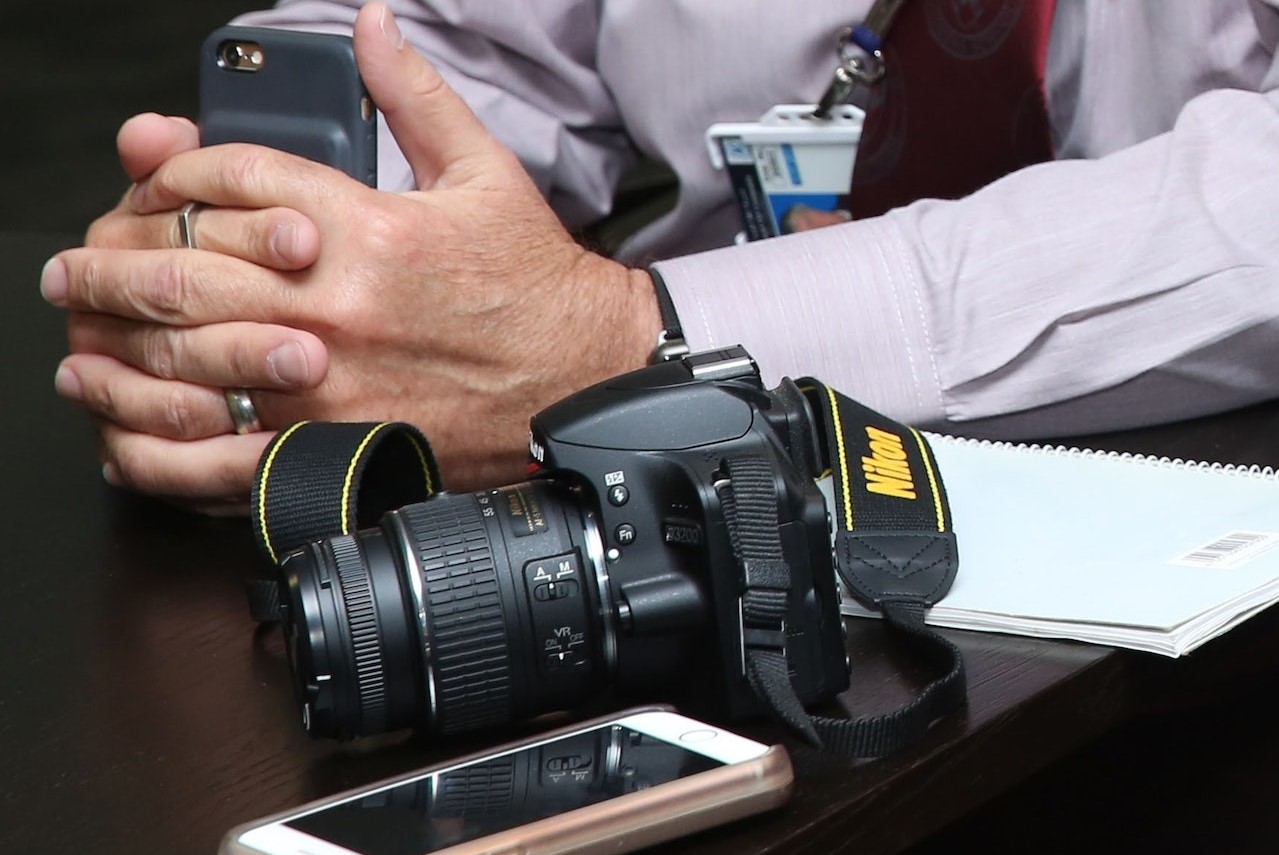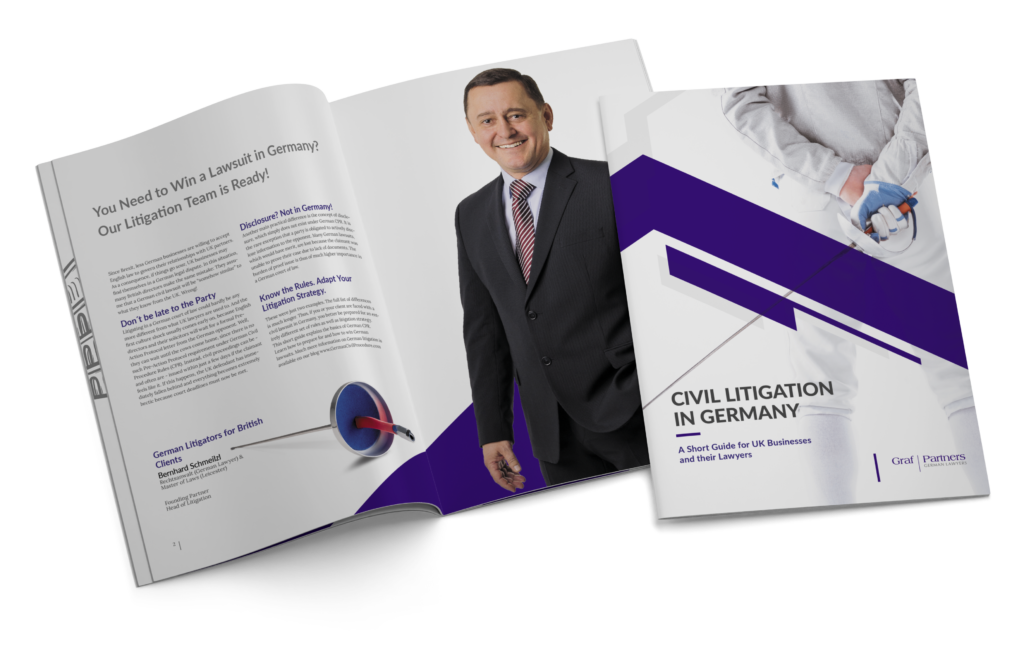
Covert voice and video recordings by journalists under German law
German law is rather obsessed with privacy and the protection of personal data. Here are two examples just to give you an idea how severely this affects everyday life. Actually, to such an extent that even Germans themselves constantly complain and moan about their own data protection laws.
Try, for instance, to obtain information from the German land registry (Grundbuch). In most Anglo-American jurisdictions, such land registry information is public record, including the purchase price and the names of previous owners. Such “needless transparency of highly personal data” (i.e. how much a German has paid for his/her residential property) would cause any German (data protection) lawyer to have a nervous breakdown. In Germany, you have no chance to obtain even the most basic information (like who owns a German property) unless you can demonstrate to the court – in writing – a legitimate interest (berechtigtes Interesse) to be granted access to the land registry records. And even then, you are merely given partial information, on a “need to know” basis. More here.
Another example? Sure. The cause of someone’s death is considered confidential private information and must not put on a German death certificate (Sterbeurkunde). This baffles many of my international probate clients because they sometimes run into the problem that the life insurance wants to know whether the cause of death may have been suicide. In cases like this, it takes weeks or months to obtain that information from the German coroner or the hospital because medical records are – you guessed it – considered extremely private and confidential. More on this here.
So, if you are a journalist planning to investigate within Germany, this German tradition of privacy of personal information is the backdrop against which you need to work. Not exactly a paradise for Bob Woodward and the likes.
Legal framework for investigative journalists in Germany
There is no “special set of rules” for journalists. Instead, members of the media, including investigative reporters must abide by the general laws which apply to everyone. Especially, when it comes to the statutes of German criminal law (Strafgesetze).
Germany is an all-party-consent jurisdiction
Making an audio recording of someone’s voice, be it in a personal meeting or a phone conversation or a video call (Zoom, Teams, Skype etc), is prohibited unless all parties involved have given their consent. In U.S. legal terminology this makes Germany a 2-party (all-party) consent jurisdiction. In the USA, most states (except for these 15 US states) only require the consent of one party. In other words, in most US states, a covert voice recording is legal – as evidenced by thousands of true crime podcasts in which such secret voice recordings are used. In Germany, pressing the record button on one’s smart phone or the Zoom app, constitutes a crime if you don’t get the other person’s prior approval.
Covert recordings in Germany
Now, sometimes an investigative reporter who tries to uncover a crime or a political scandal uses hidden recording devices, be it a hidden microphone or videocamera, because this is the only means to document the criminal act.
This is quite risky under German law, because it breaches not just data protection rules (which constitutes a misdemeanor, in German called Ordnungswidrigkeit), but it may even violate certain statutes of German criminal law. The relevant statutes are in particular:
- Recording what someone says in a non-public setting (“das nicht öffentlich gesprochene Wort”), i.e. recording someone’s voice without their knowledge and consent, is a criminal offence which may trigger a maximum sentence of three years in prison, see section 201 para. (1) German Criminal Code (https://www.gesetze-im-internet.de/stgb/__201.html)
- It is also a (separate) criminal offence to broadcast such a voice recording, section 201 para. (2) German Criminal Code (https://www.gesetze-im-internet.de/stgb/__201.html)
Therefore, German news channels and media outlets in general (be it TV, internet or radio) usually do not use such unapproved voice recordings. Instead, they (i) either indirectly report on what the person has said, or (ii) have a voice actor reenact the conversation, or (iii) show the statement as text on the screen.
- Secretly filming someone is (surprisingly), NOT a criminal offence under German law, unless such covert video taping takes place in the person’s home or the person is staked out by filming or photographing into their residential home through a window. However, even if filming a person is not a crime in Germany, the broadcasting of such a video or photograph is usually only permitted with the person’s consent, see section 22 KUG (https://www.gesetze-im-internet.de/kunsturhg/__22.html). There are exceptions when it comes to celebrities, politicians and other persons of “public interest”, for example convicted criminals. But the details on when and to what extent such exceptions apply are very complicated. Whether such footage may be published depends on many criteria (level of fame, degree of privacy of the situation (restaurant vs a private party), age of the person etc.).
This is the reason why – when in doubt – the face of a person who was (covertly or openly) filmed and has not given their consent to such footage being broacast, is usually pixelated on German television.
- With regard to the substantive content of the report, the respective persons or organisations may of course invoke German slander laws (Üble Nachrede / Verleumdung), sec. 186 and 187 German Criminal Code (https://www.gesetze-im-internet.de/stgb/BJNR001270871.html#BJNR001270871BJNG005102307) and try to prevent or stop the report by cease and desist orders or/and injunctions.
Consequences for non-German Investigative Journalists?
I am often asked what is the worst case scenario for a foreign, i.e. non-German, journalist who breaches the above laws.
Well, since the “place of the crime” (Tatort) is Germany, a German district attorney (Staatsanwalt) may in fact decide to prosecute, especially if the person who’s rights have been violated presses crimonal charges in Germany (Strafanzeige).
However, seen from a practical perspective, the realistic asessment is that in most cases, such investigations will most likely be discontued by the German prosecutor (Einstellung des Verfahrens) or – worst case – end with a rather modest monetary fine (Geldstrafe). Actual jail time, i.e. a prison sentence, is out of the question unless the journalist is a repeated offender (i.e. has been sentenced for the same offence in Germany before) and the circumstances are especially appalling. When a legitimate investigative journalist can demonstrate that he or she had good reason to act this way, the German courts will usually take this into consideration.
Obviously, I do not write this to encourage anyone to violate German criminal laws. This is merely to put the legal risks connected to such covert investigative journalism into perspective, because I am regularly approached by British or American journalists who have done some “undercover reporting” in Germany and now ask for a legal risk assessment on whether they may use the video footage and/or voice recording created in Germany.
Another FAQ by journalists or their media organisations is whether, if (worst case) it comes to a criminal conviction in Germany (which will be a financial penalty) , whether this prevents the journalist to re-enter Germany in the future. The short answer is: Extremely unlikely! Germany only denies visas if someone has been sentenced to more than 3 years in prison, or in cases of drug related or human trafficking related crimes.
Apart from personal consequences for the journalist, the media outlet may of course be faced with civil legal action. The person who feels their personal rights have been violated may try to prevent the footage to be used or may sue to stop such reporting by applying for a cease and desist order or an injunction.
– – –
GrafLegal – German litigators for UK/US clients since 2003
German civil litigation expert Bernhard Schmeilzl provides legal advice for British and US-American clients for more than 20 years, with a clear focus on high stakes civil litigation cases.
In the brochure “German Civil Litigation”, head litigator Bernhard Schmeilzl explains important facts and legal principles. Always, with a focus on practical relevance for UK and US clients who are claimants or defendants in a civil lawsuit in Germany.
We are well aware of the typical misconceptions held by UK and US business owners and their lawyers. These misconceptions result in poor litigation strategy and – eventually – lost cases in German courts of law.
We ensure that you avoid the trap of preparing your lawsuit as you would in the UK or USA when – in fact – you will face a German judge who has entirely different expectations.
The brochure is a must read for anyone involved in German civil litigation
Order your free copy by sending an email to: info@graflegal.com
Title photo by Frans van Heerden: https://www.pexels.com/de-de/foto/schwarze-nikon-dslr-kamera-neben-den-handen-der-person-627602


[…] Legal Limits of Investigative Journalism in Germany […]